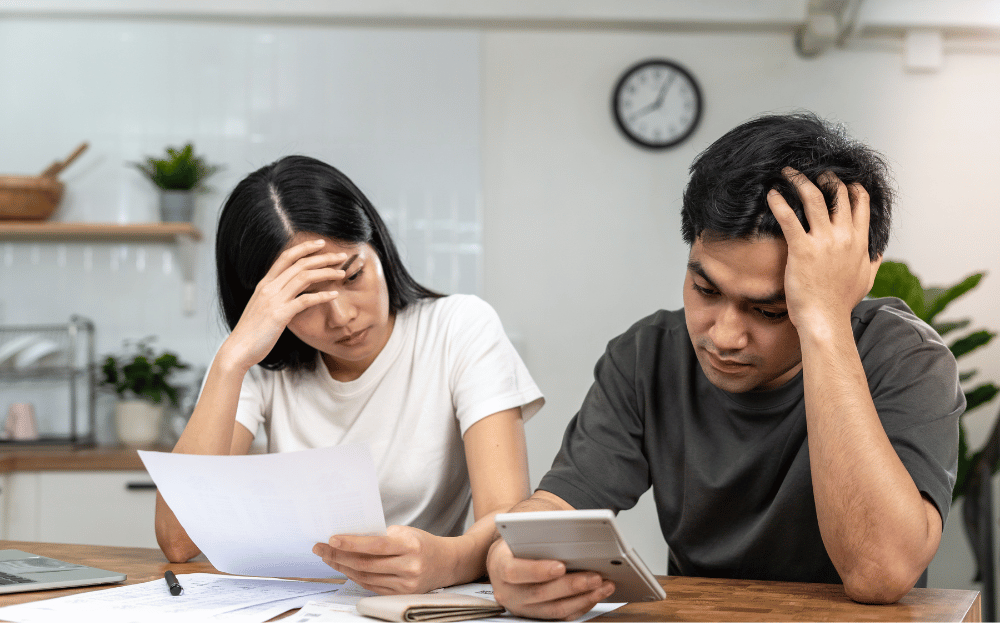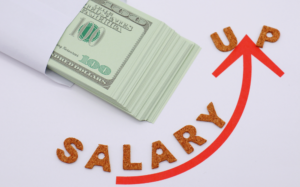Debt can be a burden if it is not resolved. Unsettled debts can also impact your financial health, mental health, social relationships, and affect your overall quality of life. For this reason, you need to know how to pay off debt effectively and quickly.
Everyone has been in a challenging financial situation. There are times when expenses are not proportional to income. Urgent needs coming together or financial mismanagement in the past can be the beginning of debt.
Treasury has summarized some effective ways to pay off debt, including payment techniques, managing emotions, income, expenses, and even investment opportunities. Let’s see the full discussion below so that you can pay off your debt as soon as possible!
1. Before Paying It Off, Make a List of All Debts
First, you need to make a complete and detailed list of debts in order to pay them off. Write down all debts you have, from credit card debt, vehicle installments, personal loans, to unpaid digital service bills. Don’t forget to include the amount of debt, the interest charged, and the due date.
This list will help you see an overview of your debt situation, make it easier to prioritize your payments, and avoid delays that could increase interest charges or penalties. This method also serves as a monitoring tool.
You can cross off the list of debts that have been paid off and see the progress that has been made. This method can bring motivation and enthusiasm in the journey of paying off debt. If you don’t have a clear list of debts, then the potential for negligence in paying off debts will be even greater.
2. Prioritize Paying Off High-Interest Debts
One of the most effective ways to pay off debt is to prioritize paying off high-interest debts. Debts such as online loans usually have higher interest rates than other loans. If left unchecked, this type of debt will continue to haunt you with increasing interest.
You can use the avalanche method, which is to focus on paying the debt with the highest interest rate first while still paying other debts according to your ability. After one large debt is paid off, then proceed to the next debt with the highest interest. This method helps you reduce the total interest that must be paid.
This way of paying off debt will help you speed up the overall repayment when compared to the strategy of spreading payments evenly. The avalanche method is proven to be more efficient in the long run.
3. Renegotiate Terms to Pay Off Debt
If you feel overwhelmed by the amount of installments or tenors that are too short, one way to pay off debt that is rarely thought of is to renegotiate debt terms with the lender. Many financial institutions are willing to provide restructuring for proactive debtors.
These negotiations can include lowering interest rates, extending tenors, or merging several debts into one with a lighter scheme. The key is honest communication and proof that you are committed to paying off the debt.
In some cases, financial institutions may offer interest rebates or more affordable fixed installment programs. There is no harm in asking, because this way of paying off debt can be a solution to reduce financial pressure so that it becomes more realistic and in accordance with your current abilities.
Also Read: Smart Mom Strategies for Managing Household Finances – Treasury
4. Maintain Mental and Emotional Stability
Many people do not realize that mental health also affects the success of the debt relief journey. When pressured by debt, you may experience stress, sleep disturbances, or even impulsive financial decisions. Keep your emotions stable so that you can be more focused, disciplined, and consistent in paying off your debt.
If necessary, seek support from someone close to you or a financial consultant to assist you in this process. Train yourself to stay calm when facing bills or collection calls. Avoid blaming yourself excessively, because it will only make your spirit decrease. Focus your mind on the solution, not on the pressure that comes.
5. Evaluate Expenses and Make Savings
The next way to pay off debt that you can try is to identify financial leaks. Review all routine expenses such as unused subscriptions, impulse shopping, or a lifestyle that is too extravagant. Make the results of the evaluation as a foundation for making a more mature financial plan.
You can start from small things like bringing lunch to work, limiting online shopping, or using public transportation. Although it looks simple, if collected, these savings can be significant enough to increase debt installments. More efficient spending also provides a sense of control over finances.
6. How to Pay Off Debt by Increasing Income
Only relying on one source of income can slow down the way to pay off debt. You can try to increase your income to make the debt repayment process faster and more effective. You can take additional jobs, become a freelancer, or open a small business according to your interests.
Currently, there are many digital-based additional income opportunities such as selling online, affiliate marketing, or becoming a content creator. You just need to adjust to your time and expertise. The proceeds from this additional income should be directly focused on paying debts, not increasing consumption.
7. Increase Investment Opportunities
Although your main focus is to pay off debt, you can still start setting aside funds for investment even if it is only small. This can be a way to pay off medium to long-term debt, because the investment results can be used as additional payment funds or even a multiplier of assets that you have.
The investment in question is certainly not a high-risk one. Choose instruments that are safe, resistant to inflation, and easy to liquidate such as gold. In the Treasury application, you can take advantage of the Gold Harvest feature which will provide gold bonuses if you save and store your gold within a certain period of time.
This method can also be an emergency fund if at any time you need additional funds. You can also learn to invest while paying off debt, so that when the debt is paid off later you already have the foundation to build wealth. Don’t wait for the debt to be paid off to start learning investment. Start now according to your ability.
8. Avoid Adding New Debt
The most important thing in how to pay off debt is not to create new debt. Don’t be tempted to take out a new loan just to pay off the old one, especially if it has a higher interest rate. Creating new debt to pay off old debt will keep you trapped in a cycle of debt that will not stop.
Keeping yourself from taking on new debt is a very important form of discipline. You are rebuilding your financial habits, so every decision must be more careful. Ideally, your main focus should be to pay off your existing debts.
However, if it is really urgent, make sure that the new debt you take is productive and can really improve your ability to pay debts. Not just covering temporary shortages.
9. Monitor and Evaluate Progress
The last way to pay off debt is to always monitor the progress of debt repayment regularly. This method is very important because it can provide feedback on whether the strategy you have implemented is working well or needs to be improved. You can make a progress chart, monthly checklist, or simple report.
Every little achievement should be appreciated so that the motivation to pay off debt remains high. Evaluation can also open up opportunities for improvement in how to pay off debt, such as finding expenses that can be further reduced or new additional income opportunities.
There is no debt that cannot be resolved if you have a strong strategy and commitment. Doing how to pay off debt is not easy. You don’t have to be perfect in managing finances right away. The key is to start with small steps and do it consistently.
In fact, how to pay off debt is not just about numbers, but also about changing mindsets. When debt starts to decrease, your confidence will increase and the future will feel brighter. Let’s start practicing how to pay off debt today so that we can be debt-free in the future!











